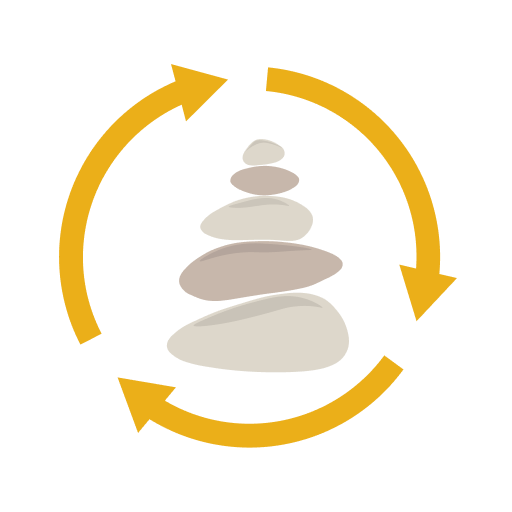Bed and Bath TENCEL™ Linen
Key Features

The solution checked and verified on delivery and sustainability standards by Sustainability Kiosk experts
- Quality is built into the product, even into its name. TENCEL™ comes from Tenacity (‘Ten’) and Cellulose (‘Cel’). It uses fiber which has the highest strength in the cellulose fiber family. TENCEL™ Fibers provides comfort that is superior to cotton, thus offering the best of both products.
- TENCEL™ fibers absorb and distribute moisture quickly over a large surface. Normal cotton has 6-8% moisture regain; TENCEL™ has 10-12% moisture regain. Higher the regain, better is the moisture regulation and comfort.
- This characteristic offers better absorption of water by bath towels, as well as shorter drying times during the laundry process.
- Dr. Linen™’s better moisture management also creates unfavourable conditions for the growth of bacteria or mildew, compared to when 100% cotton products are used.
- Dr. Linen™ fabrics dry faster, the turnaround time is also shorter. Most importantly, these fabrics require less water during the laundry process.
- The choice of linen will shift from brand standards like 100% cotton, which is a water-intensive crop, to sustainable, hygienic options like Dr. Linen™
- Dr. Linen™ fabrics have a 10-12% Moisture Regain.
The Process
- Lenzing’s TENCEL™ Lyocell fibres are made from the bark of the eucalyptus tree. A pulp conversion process transforms this into white pulp, dissolved in an organic solvent, much like sugar dissolving in water.
- This solution is then passed through a spinneret and reprecipitated in the form of strands of Lyocell fibre.
- The trees that provide the raw material are taken only from those certified as sustainable forests.
- The solvent used is recirculated to the extent of 99.9%. Wastewater generation is minimal; whatever is generated is adequately treated.
- TENCEL™ yarn is produced in Austria by Lenzing, and then tree yarn is transported to India, where the wool is blended with cotton to create Dr. Linen™ Products.
The Process
- Lenzing’s TENCEL™ Lyocell fibres are made from the bark of the eucalyptus tree. A pulp conversion process transforms this into white pulp, dissolved in an organic solvent, much like sugar dissolving in water.
- This solution is then passed through a spinneret and reprecipitated in the form of strands of Lyocell fibre.
- The trees that provide the raw material are taken only from those certified as sustainable forests.
- The solvent used is recirculated to the extent of 99.9%. Wastewater generation is minimal; whatever is generated is adequately treated.
- TENCEL™ yarn is produced in Austria by Lenzing, and then tree yarn is transported to India, where the wool is blended with cotton to create Dr. Linen™ Products.
Sustainablity Story
Verified By
Raw Materials
Tencel requires less water in processing the fibre than that cotton. For example, 20,000 litres of water is needed to process a kilo of cotton, whereas Tencel requires only 50 Litres of water. Lenzing's TENCEL™ Lyocell fibres are made from the bark of the eucalyptus tree.
Manufacture
Tencel Yarn is produced in Austria and then transported raw to India, for blending and manufacture.
Transport & Delivery
Bales are transported by sea freight from Austria to India.
Disposal, Reuse & Recycle
All condemned linen eventually ends up in a landfill, the soil or the sea, where it survives for years and may slowly pollute its environment…but not TENCEL™. Certified as biodegradable, it becomes compost or biodegrades within 16-20 weeks, wherever it ends up, leaving no long-term, permanent impact on the environment.
Impact Reporting
- Less energy and water used in laundering
- Better breathability leading to higher standards of hygiene
- Purchasing from a company that has a closed-loop sustainable manufacturing process
Sustainablity Story
Verified By
Raw Matarials
Tencel requires less water in processing the fibre than that cotton. For example, 20,000 litres of water is needed to process a kilo of cotton, whereas Tencel requires only 50 Litres of water. Lenzing's TENCEL™ Lyocell fibres are made from the bark of the eucalyptus tree.
Manufacture
Tencel Yarn is produced in Austria and then transported raw to India, for blending and manufacture.
Transport & Delivery
Bales are transported by sea freight from Austria to India.
Disposal, Reuse & Recycle
All condemned linen eventually ends up in a landfill, the soil or the sea, where it survives for years and may slowly pollute its environment…but not TENCEL™. Certified as biodegradable, it becomes compost or biodegrades within 16-20 weeks, wherever it ends up, leaving no long-term, permanent impact on the environment.
Impact Reporting
- Less energy and water used in laundering
- Better breathability leading to higher standards of hygiene
- Purchasing from a company that has a closed-loop sustainable manufacturing process
Product Information
Product Information
Product Certification
You must be logged in to post a review.
Related products
-
Cleaning & Air Quality
Connected Environments: Aura Air (Aura, Mini and Enterprise)
Download Brochure -
Cleaning & Air Quality
Portable Air Solutions: Restrooms, washrooms, hygiene & odour control...
Download Brochure -
Cleaning & Air Quality
Contamination Control: UV Treatment, Steril-Aire Cooling Coil Treatment
Read more
Contact Seller
"*" indicates required fields












Reviews
There are no reviews yet.